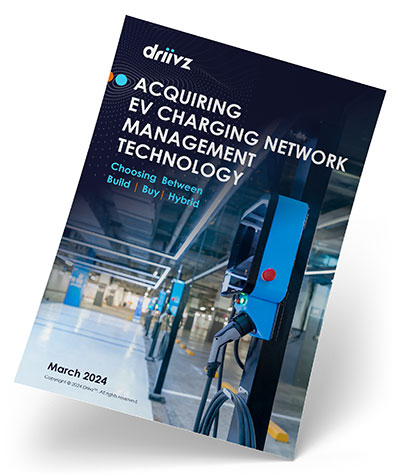With the global EV charging infrastructure market predicted to reach $140 billion by 2030, EV charging businesses will face stiff competition, if they aren’t already. Just like operating any venture, to be and stay a frontrunner, it’s important to keep the EV charging station infrastructure costs as low as possible while offering great service to customers.
One of the best ways to achieve this is to understand what EV charging station infrastructure really costs. When it comes to hardware, it’s a task easier said than done because nearly every EV charging infrastructure component is available at such a wide range of prices. Therefore, cost comparisons across vendors are, at best, difficult, if not impossible.
However, it is generally accepted that significant cost drivers relating to the EV charging station infrastructure fall under “Soft costs”, procurement and requirements – ensuring standardization of communications infrastructure, compliance with industry standards, managed charging capability, support of payment systems, future-proofing, etc.

Save costs by deploying a smart EV charging and energy management solution
Using a smart cloud-based platform that spans EV charging and energy management tools, EV charging providers can reduce operational costs substantially.
- Save by using smart charging – By using a solution with smart charging capabilities, it’s much easier for eMobility providers to reliably manage power requirements for the site. Smart energy management encourages charging during a utility grid’s low-demand hours and avoids charging during peak hours. This controls costs as well as charging to optimize energy utilization.
- Save on software integration costs – Deploy a platform that is hardware-agnostic and based on open standard communication protocols, that supports most charger models. Ideally, the platform includes tools to integrate and offers off-the-shelf compliance with open-standard protocols such as OCPP 1.6, OCPP 2.0.1, for a cost-optimal and future-proof approach. Some EV charging solution providers require EVSPs and EV charging services hosts to purchase proprietary management software through expensive contracts. This type of vendor lock-in can be avoided by purchasing an open hardware-agnostic EV charging management platform separately from the hardware.
- Save on grid hosting capacity costs – Higher levels of power demand may require a site to constantly upgrade its power infrastructure at considerable expense, making energy management a key issue. An EV charging management platform addresses this by optimizing energy management at the site, within the campus and on micro-grid and grid levels, balancing demand throughout the day to ensure continuous charging capabilities without having to supplement electrical infrastructure.
- Save via compliance with open standards – Choose a solution that’s complies with open industry standards, e.g.: OCPP, OCPI, OpenADR, and OICP, to ensure you have the flexibility to determine which hardware is most appropriate and realize cost saving opportunities. This also allows smoother access and control and optimizes EV charging operations management. Furthermore, save on integration costs by achieving interoperability and boost competitiveness by ensuring the most cost-effective hardware and network services combination.
Ultimately, the ideal choice is an EV charging and energy management platform that delivers freedom of choice and is futureproofed, one that supports all business models for the short- and long-term, provides compatibility with any of today and tomorrow’s hardware, and allows implementation of the best solutions to create a superior customer experience – all while delivering comprehensive capabilities to help save on EV charging infrastructure costs and reduce the total cost of operations.





